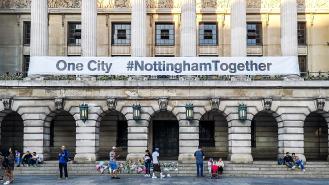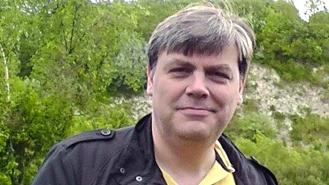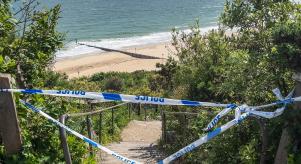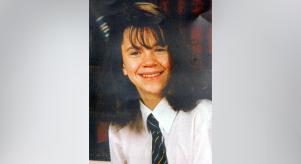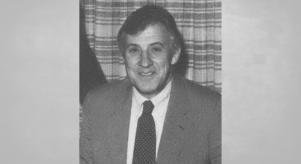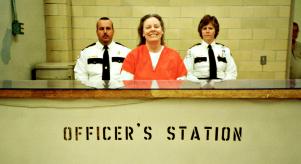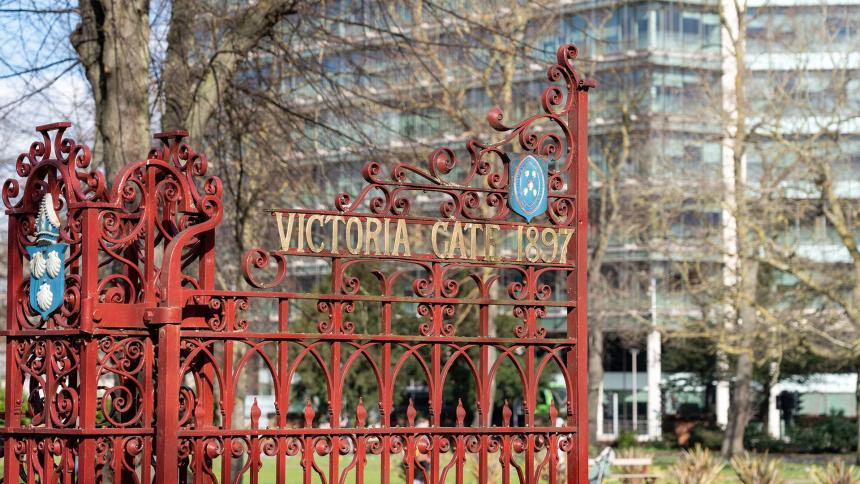
The Reading park terror attack that claimed three lives
On Crimes That Shook Britain, broadcaster Dermot Murnaghan is joined by a team of experts and witnesses to examine cases that gripped the nation to explore how they shaped public conversation. Series nine airs Mondays at 9pm on Crime+Investigation and features the Reading stabbings from 2020.
The pandemic will always be remembered as the time the world stood still. ‘Stay home’ and ‘stay safe’ were phrases we knew extremely well. However, when lockdown rules started to relax in June 2020, and people started to venture out, three men became victims of a vicious rampage at Forbury Gardens in Reading.
In this article, we look at the 2020 attack in a Reading park, the background of the victims and the effects the attack had on the community.
A 30-second rampage
Looking for a new place to meet, friends James Furlong, David Wails and Joseph Ritchie-Bennett, had chosen Forbury Gardens. Their local pub, The Blagrave Arms, was closed due to lockdown restrictions. The park is where 25-year-old Khairi Saadallah stabbed the three men to death and attempted to murder more innocent people.
‘So swift, ruthless and brutal,’ Sir Adrian Fulford, the judge coroner, advised jurors that Saadallah’s attack happened so quickly that the three victims wouldn’t have had much time to react and defend themselves.
According to the inquest, the assailant had previously committed various violent attacks and had served time for said offences.
The day before the attack, Saadallah’s brother contacted the police concerned that his sibling was either going to harm himself or others around him – he had previously talked about 9/11 and ‘going to heaven’.
A void that will never be filled
A case that shook the entire UK made its way across the Atlantic as one of the victims, 39-year-old Joseph Ritchie-Bennett, was an American citizen. His brother Robert told the inquest via video link that Philadelphia-native Joseph was: ‘Funny - hilarious at times. He was sincere. He listened. He ensured everyone felt included. He ensured everyone had a voice. He was the definition of the word ambassador.’
He later added: ‘When you think of Joe, you smile because he was lovable...It is unfair what happened to Joe. He did not deserve to be murdered.
‘There’s a hole in our hearts and a void that will never be filled since Joseph was taken from us.’
The coming-together of a community
Another victim of the attack, 49-year-old David Wails has been described by friends and locals at the pub he frequented as ‘a banter person, we’d have a lot of banter’.
David Wails’ brother Andrew said outside the court: ‘I will never forgive and never forget the pain and suffering inflicted on David and my family, which we have to endure for the rest of our lives.’
David, Joseph and James were known by peers as ‘great supporters’ of the LGBTQ+ community in Reading. The chief executive of Reading Pride told news outlets that ‘their loss is a tragedy to so many’.
‘They will be sorely missed by myself personally and many in the community.
‘We will come together as a community... We will work to make things better [for the victims’ family and friends] and assist if there is any shortfall in any aspect of this atrocity.’
'Didn’t stand a chance'
History teacher James Furlong was described by one of his pupils as ‘always smiling’. Ella Banbury told reporters: ‘He was just a really kind teacher. You would always see him smile – there wouldn’t be a time where you wouldn’t see him smiling.’
The Holt School in Wokingham, where 36-year-old James taught, held a two-minute silence in the teacher’s honour, with more than 100 students in attendance.
As well as his colleagues and students, his dad spoke about the events while outside the Old Bailey, stating that ‘Our boys didn't stand a chance’.
‘It is clear that there was failure after failure by all state agencies who dealt with Saadallah,’ he said.
A whole life order
Arriving in the UK in 2012 from Libya, Saadallah is said to have had PTSD – among other conditions – after fighting in the Libyan revolution as a teenager. According to sources, he had an extensive relationship with mental health services.
Suffering from antisocial personality disorder and ‘moderate to severe’ substance abuse, it’s been questioned whether the attacks would’ve occurred if these health issues had been managed correctly in the first place.
In January 2021, Saadallah was handed a life sentence for the ruthless and brutal murder of Joseph Ritchie-Bennett, David Wails and James Furlong.
